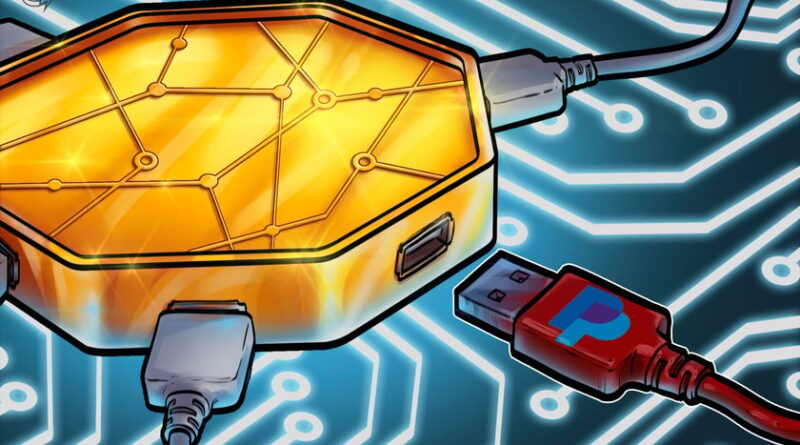US House Financial Services Committee leadership takes opposing sides on the PayPal stablecoin
Rep. Maxine Waters said she was “deeply concerned” about PYUSD without a proper regulatory framework in place, while Rep. Patrick McHenry said it “hold[s] promise.”
PayPal’s launch of a U.S. dollar-pegged stablecoin has prompted questions from Democratic members of the House Financial Services Committee, while Republican leadership said the coin showed the potential of regulatory clarity.
In an Aug. 9 statement, committee ranking member Maxine Waters said she was “deeply concerned” about the PayPal USD (PYUSD) stablecoin without a regulatory framework in place to ensure oversight and protection for investors. PayPal announced the stablecoin’s launch on Aug. 7, saying its PYUSD would be issued by Paxos Trust and “fully backed by U.S. dollar deposits, short-term U.S. treasuries and similar cash equivalents.”
“Without legislation on the books that establishes clear and strong consumer protections at the Federal level, consumers are at greater risk of harm at the hands of bad actors,” said Waters. “Stablecoins represent the issuance of a new form of money, making it integral that there are Federal guardrails.”
A tale of two lawmakers and their response to the launch of PayPal’s stablecoin: Rep. Patrick McHenry (R-NC) is jazzed, and Rep. Maxine Waters (D-Calif.) is not. pic.twitter.com/RGwtPW8eIs
— Brendan Pedersen (@BrendanPedersen) August 9, 2023
On July 28, the committee passed the Clarity for Payment Stablecoins Act, moving the legislation to the House for a full vote pending any obstacles. Lawmakers had debated markups on the bill, which ultimately passed the committee largely in the version originally proposed by Republican members.
Cointelegraph reached out to Waters for comment but did not receive a response at the time of publication. She suggested in her written statement that with the partisan approach to the stablecoin-focused bill, it had “no chance of actually being signed into law” and called for more negotiations between Democratic and Republican lawmakers:
“The Republican bill gives stablecoins like PayPal USD that are issued under state regimes a seal of approval, but blocks the Federal Reserve from overseeing or enforcing any Federal standards.”
Related: PayPal USD: Boon for Ethereum but not decentralization, says community
Committee Chair Patrick McHenry said on Aug. 7 the PayPal stablecoin represented “promise” for the future of payments if established under a clear regulatory framework. He called for the passage of the Clarity for Payment Stablecoins Act, which has seen no movement since July 27.
Crypto users in the United States have been able to use PayPal to purchase many tokens since the launch of the platform’s trading feature in 2020. Since the PYUSD announcement, scammers have created many fake tokens with similar names in a likely attempt to capitalize on the payments firm’s media attention.
Magazine: Opinion: GOP crypto maxis almost as bad as Dems’ ‘anti-crypto army’




